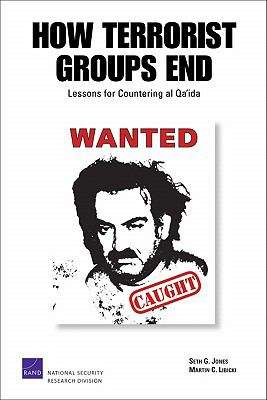How Terrorist Groups End: Lessons for Countering Al Qa'ida
By: and
Sign Up Now!
Already a Member? Log In
You must be logged into Bookshare to access this title.
Learn about membership options,
or view our freely available titles.
- Synopsis
- All terrorist groups eventually end. But how do they end? The evidence since 1968 indicates that most groups have ended because (1) they joined the political process (43 percent) or (2) local police and intelligence agencies arrested or killed key members (40 percent). Military force has rarely been the primary reason for the end of terrorist groups, and few groups within this time frame have achieved victory. This has significant implications for dealing with al Qa'ida and suggests fundamentally rethinking post-9/11 U.S. counterterrorism strategy: Policymakers need to understand where to prioritize their efforts with limited resources and attention. The authors report that religious terrorist groups take longer to eliminate than other groups and rarely achieve their objectives. The largest groups achieve their goals more often and last longer than the smallest ones do. Finally, groups from upper-income countries are more likely to be left-wing or nationalist and less likely to have religion as their motivation. The authors conclude that policing and intelligence, rather than military force, should form the backbone of U.S. efforts against al Qa'ida. And U.S. policymakers should end the use of the phrase 'war on terrorism' since there is no battlefield solution to defeating al Qa'ida.
- Copyright:
- 2008
Book Details
- Book Quality:
- Publisher Quality
- ISBN-13:
- 9780833046406
- Publisher:
- RAND Corporation
- Date of Addition:
- 08/04/13
- Copyrighted By:
- RAND Corporation
- Adult content:
- No
- Language:
- English
- Has Image Descriptions:
- No
- Categories:
- Military, Nonfiction, Science, Technology, Politics and Government
- Submitted By:
- Bookshare Staff
- Usage Restrictions:
- This is a copyrighted book.
Reviews
Other Books
- by Martin C. Libicki
- by Seth G. Jones
- in Military
- in Nonfiction
- in Science
- in Technology
- in Politics and Government
